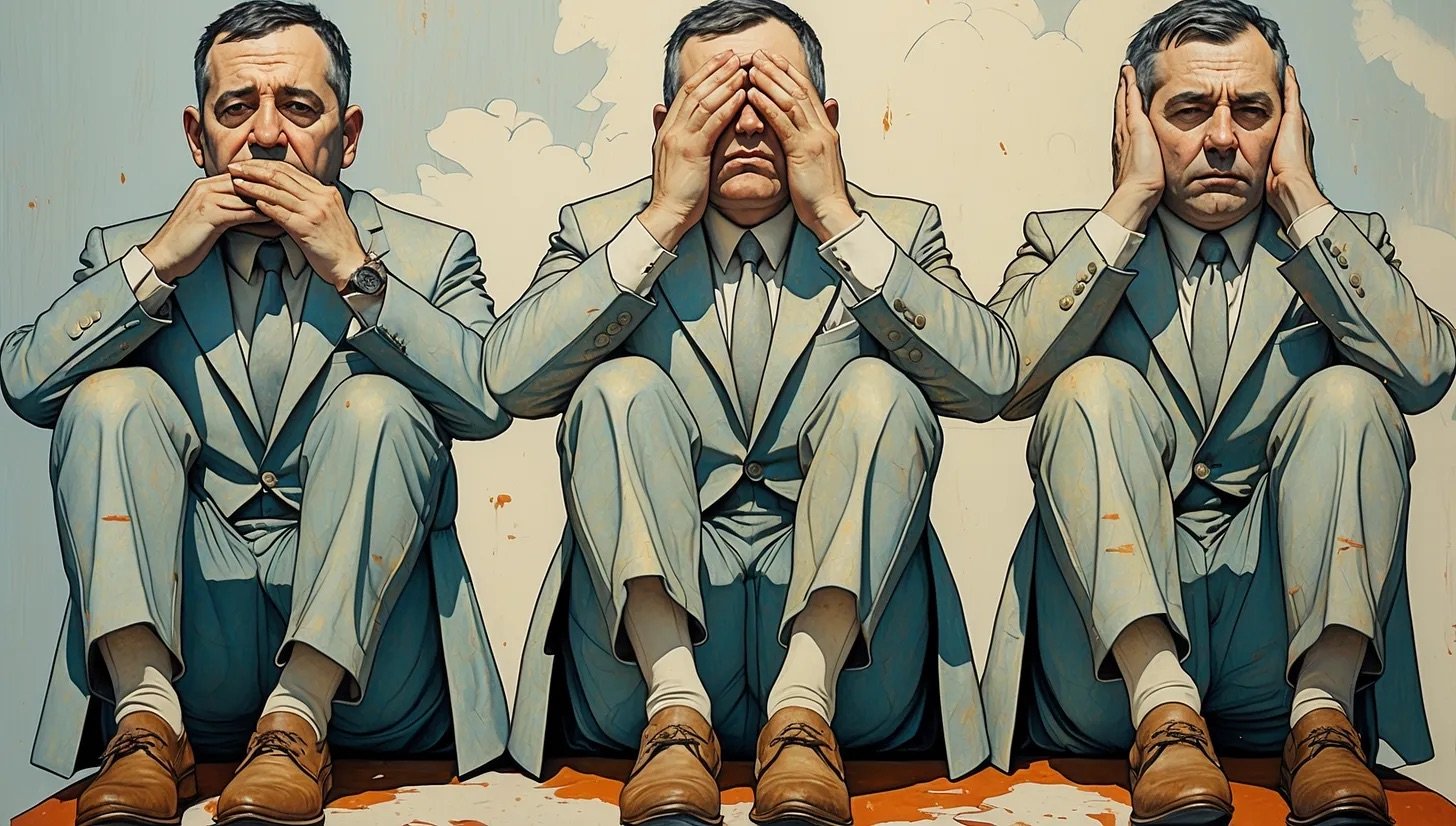The Rooster In Flight - A Substack Article
The Chasm Between A Presidential Proclamation and Social Media Post
A Post Easter Meditation
By: Wynand Johannes de Kock
April 27, 2025 
The stone rolls away. The tomb empties. Light prevails over darkness. And then, a minute later, the vitriol begins.
How does one reconcile the theological precision of President Trump's Easter proclamation—its rich imagery of redemption and resurrection—with the caustic Truth Social post that followed? The juxtaposition is not merely jarring; it's revelatory. Like a fault line running through Western Christianity, this bifurcation exposes something essential about faith in the public square: the gap between what we proclaim and what we practice has become a dwelling place for abusive power.
I find myself caught in the tension. One moment, my heart leaps at the proclamation's truth—"Through His suffering, we have redemption"—yet sinks at the misappropriation that followed in the social media post.
President Trump's Easter proclamation possesses an undeniable theological beauty. Its language—"the living Son of God who conquered death, freed us from sin, and unlocked the gates of Heaven"—echoes the ancient creeds with surprising precision. The text traces Holy Week's sacred arc from Palm Sunday through the Paschal Triduum to Easter morning with the kind of liturgical specificity that suggests careful attention to Christian tradition.
The presidential proclamation strikes at the raw nerve of Easter's central paradox, where to shine is first to suffer, where glory isn't glory until it has known blood and absence. "During this sacred week," it reads, with that formal distance of government language that nonetheless hits the mark, "we acknowledge that the glory of Easter Sunday cannot come without the sacrifice Jesus Christ made on the cross." This paradox cuts through our denominational borders like a blade through water, binding believers not in theological agreement but in the shared trembling before mystery: that what saves us must first break us, that faith persists not despite doubt but within its very shadow. We are creatures who need both the cross and the empty tomb, both the suffering and its transfiguration, both the silence and what comes after.
Franklin Graham called the proclamation "historic," noting there hasn't been "in my lifetime a president that has communicated the gospel as clearly as he has"[1]. The Christian Post described it as "a reverent reflection on the theological underpinnings of the historic Christian faith"[2]. For many Christians weary of cultural marginalisation, these words offered validation, a rare acknowledgment of their faith's centrality to American and Western identity.
Albert Mohler, one of America’s most influential evangelical theologians, delivered a striking and almost astonished commendation of President Trump’s 2025 Easter proclamation, calling it “stunningly different” and “pretty unprecedented” for a presidential statement. What truly electrified Mohler was Trump’s invocation of “Christ’s eternal kingdom in heaven”, a direct presidential acknowledgment of a higher allegiance than the United States itself, an act Mohler called “very, very interesting” and “incredibly significant,”[3] given that presidents are usually expected to extol America as the highest good.
Proclamation’s living promise, like sunlight in the wine,
Pours warmth through marble corridors where ancient echoes shine.
“Through suffering, comes redemption”-words that lift and sing,
From palms to cross to empty tomb, the sacred arc takes wing.
It sketches hope that pulses through the marrow of our days-
No darkness stands where love has crowned the world with Easter blaze.
To rise is gift and calling: trembling wonder binds, and stays.
Interested in completing the article? Follow Wynand on Substack